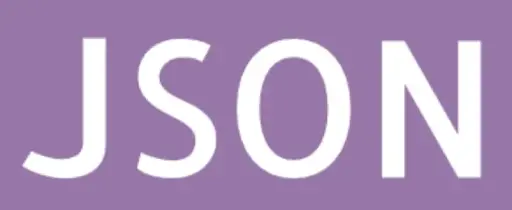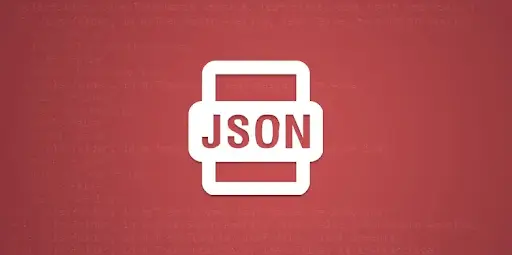
JSON Validation Best Practices: Ensuring Data Integrity

JSON (JavaScript Object Notation) has emerged as a widely adopted standard for representing structured data in various applications and systems. Its simplicity, flexibility, and human-readable format make it a popular choice for data exchange and storage. However, the reliability and integrity of data are paramount, and that's where JSON validation comes into play.
In this comprehensive guide, we will delve into the best practices and introduce you to free online JSON validator tools to ensure data integrity. Whether you're a seasoned developer or new to JSON, understanding and implementing these best practices will help you maintain the quality of your data. Check out BeBran's Free JSON Validator Tool.
The Importance of JSON Validation
JSON validation is the process of verifying whether a JSON document adheres to predefined rules and structure outlined in a JSON schema. It ensures that JSON data is correctly formatted and complies with the expected structure. JSON validation typically checks for:
- Syntax Errors: Ensuring that the JSON document follows the correct syntax, including proper nesting, quotation marks, commas, and braces.
- Data Types: Verifying that the values within the JSON document are of the correct data types, such as strings, numbers, booleans, objects, or arrays.
- Required Fields: Confirming the presence of mandatory fields in the JSON document.
- Valid Values: Checking that the values in the JSON document fall within the acceptable range or constraints specified by the schema.
- Consistency: Ensuring consistency in naming conventions and data structures throughout the document.
The importance of JSON validation lies in:
- Data Integrity: It guarantees the accuracy and completeness of the data, reducing the risk of data corruption or inaccuracies.
- Error Prevention: Validation catches errors and inconsistencies early in the data processing pipeline, preventing potential issues downstream.
- Interoperability: JSON validation fosters interoperability by ensuring that data exchanged between different systems conforms to a common standard.
- Security: It helps identify potential security vulnerabilities, such as injection attacks, by verifying that data adheres to the expected format and constraints.
- Documentation: JSON validation schemas serve as documentation for the expected data structure, providing clarity and guidance for developers and data consumers.
Now that we understand the significance, let's explore the best practices for implementing it effectively.
Free Tools: Free Comma Separator Tool Online | Free Related Keywords Finder Tool Online | Free Word Counter Tool Online
Best Practices for JSON Validation
- Define Clear Validation Rules
Before validating JSON data, establish clear validation rules and schemas. Define the expected structure, data types, and constraints for your JSON data. A well-defined schema serves as a blueprint for validation. - Validate Early in the Data Pipeline
Integrate JSON validation as an early step in your data processing pipeline. By catching errors at the outset, you prevent the propagation of incorrect data, reducing the risk of costly issues down the line. - Leverage JSON Schema
JSON Schema is a powerful tool for defining and validating JSON data structures. Utilize JSON Schema to specify validation rules, including data types, required fields, and constraints. It provides a standardized way to validate JSON. - Use JSON Validation Libraries
Leverage JSON validation libraries available in your programming language of choice. These libraries simplify the validation process by providing pre-built functions and tools for validating JSON data against schemas. - Employ Free Online JSON Validator Tools
Take advantage of free online JSON validator tools to validate JSON data quickly and easily. These tools offer a user-friendly interface and instant validation feedback, making it convenient to validate JSON data. Check out BeBran's Free JSON Validator Tool.
Now, let's explore some of the best free online JSON validator tools that you can use to implement these best practices.

Free Online Tools To Validate JSON Code
1. JSONLint (jsonlint.com)
JSONLint is a popular online JSON validator that provides a simple and user-friendly interface. It not only checks the syntax of your JSON data but also offers schema validation if you provide a JSON schema. The tool highlights errors and provides helpful error messages to assist with debugging.
Key Features:
- - Syntax and schema validation.
- - User-friendly interface.
- - Error highlighting and explanations.
2. JSON Schema Validator (jsonschemavalidator.net)
JSON Schema Validator is an online tool that specializes in validating JSON data against JSON schemas. It allows you to input your JSON data and schema and instantly validates them. The tool provides clear validation results and error messages.
Key Features:
- - JSON schema validation.
- - Easy-to-use interface.
- - Instant validation feedback.
3. Online JSON Validator (jsonschemavalidator.org)
Online JSON Validator is a versatile tool that supports both JSON schema validation and simple JSON syntax checking. It offers a clean interface, making it easy to validate your JSON data and schemas quickly.
Key Features:
- - JSON schema and syntax validation.
- - Clean and intuitive interface.
- - Instant validation results.
4. JSON Validator by CodeBeautify (codebeautify.org/jsonvalidator)
JSON Validator by CodeBeautify is a straightforward online tool for validating JSON data. It allows you to paste your JSON data or provide a URL for validation. The tool highlights syntax errors and provides validation feedback.
Key Features:
- - Syntax validation.
- - Supports both JSON data and URL validation.
- - Error highlighting.
5. JSON Validator (jsonvalidator.net)
JSON Validator is a simple online tool that focuses on syntax validation for JSON data. It provides a minimalist interface where you can paste your JSON data and receive instant validation results. It's a quick and efficient tool for checking JSON syntax.
Key Features:
- - Syntax validation.
- - Minimalist interface.
- - Instant validation feedback.
By implementing these best practices and using free online JSON validator tools, you can ensure the integrity of your JSON data and streamline your data processing workflow.
Conclusion
JSON validation is an essential practice for maintaining data integrity and ensuring error-free data processing. By adhering to best practices and utilizing free online JSON validator tools, you can validate JSON data efficiently and effectively. Whether you're validating JSON syntax or applying complex JSON schemas, these tools simplify the process and enhance the reliability of your data. Check out BeBran's Free JSON Validator Tool.
Ensure that JSON validation is an integral part of your data processing pipeline to prevent data corruption, errors, and security vulnerabilities. With these top JSON validator tools and best practices, you can validate your JSON data with confidence.
Explore More: How to Use a Free Comma Separator for Cleaning Your Excel Data | Best Free Comma Separator Tools for Programmers and Developers
Frequently Asked Questions
1. What are the best practices for JSON validation?
The best practices for JSON validation include defining clear validation rules, validating early in the data pipeline, leveraging JSON Schema, using JSON validation libraries, and employing free online JSON validator tools for quick and convenient validation.
2. What is a JSON validator tool online?
A JSON validator tool online is a web-based tool that allows you to check the validity of JSON data against predefined schemas or JSON syntax rules. It helps ensure that your JSON data is correctly formatted and adheres to the expected structure.
3. Can I use free online JSON validator tools?
Yes, there are several free online JSON validator tools available that allow you to validate JSON data quickly and easily. These tools offer a user-friendly interface and instant validation feedback, making them convenient for data validation.
4. How does JSON validation enhance data integrity?
JSON validation enhances data integrity by verifying the accuracy and completeness of the data. It helps prevent data corruption, errors, and inconsistencies, ensuring that the data conforms to the expected structure and constraints.
5. Why is JSON validation important in data processing?
JSON validation is essential in data processing to maintain data integrity, prevent errors, enhance security, promote interoperability, and ensure that data meets the specified standards. It helps identify and rectify validation errors early in the data processing pipeline.



